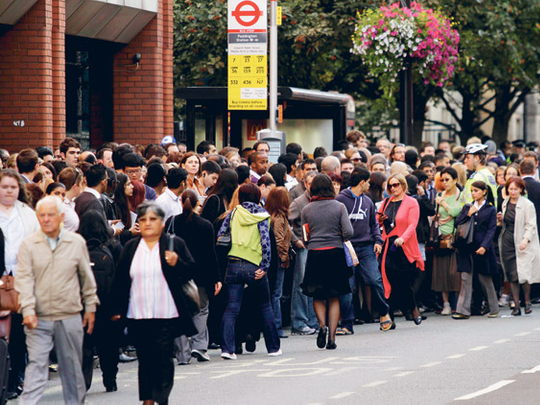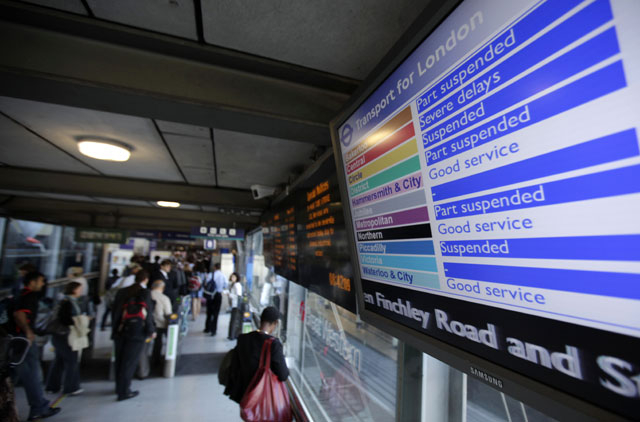
London: Millions of commuters across the British capital struggled to get to work on Tuesday as a 24-hour strike by workers on London's underground rail system crippled much of the network, hurting the city's convalescent economy.
Passengers took to bikes, buses, walked, or made use of extra boat services on the River Thames that snakes through the city in a bid to beat the stoppage, called in protest at 800 job cuts driven by austerity measures.
The London Chamber of Commerce estimates each day the underground is shut will cost the capital's economy £48 million pounds (Dh270 million).
The Rail Maritime and Transport union said every underground line was suspended or running a skeleton service after "rock solid" support for the walkouts in protest at staffing cuts.
However, underground operator Transport for London (TFL) said almost 40 per cent of trains were running normally and contingency to limit the strike's impact were working.
Scores of people queued for buses and taxis and streets in London's financial district were snarled with traffic as heavy rain compounded commuters' problems.
The RMT said the job cuts were just "the tip of the iceberg" as the coalition government led by centre-right Conservatives prepares 25 per cent spending cuts to tackle a record budget deficit.
Governments across Europe face labour unrest as they take unpopular measures to curb state spending that soared in the 2008-09 global financial crisis.
Rail and air transport, schools and postal services were severely disrupted across France by strikes and demonstrations against plans to raise the retirement age to curb a swollen public deficit.
Austerity drive
Britain, which had to bail out its giant financial sector, is planning the harshest austerity drive in decades, with pay, job and spending cuts and pension reform looming. Ministries have been ordered to make average cuts of about 25 per cent and told to suggest budget savings of up to 40 per cent.
Thousands of members of the RMT and the Transport Salaried Staffs Association walked out on Monday evening in protest at plans to axe jobs in stations on the publicly-funded network.
The operator said all but one underground line was working, but admitted many stations were closed on routes into the city.
Unions alleged that the skeleton service organised by Tube bosses broke safety laws brought in after a central London fire at King's Cross station killed 31 people in 1987.
Mike Brown, London Underground's managing director, said: "Londoners will face some disruption, but the city is not paralysed - and people will still be able to get around."
TFL said a good service was operating on Docklands Light Railway, which serves the financial district in the east of the city.













